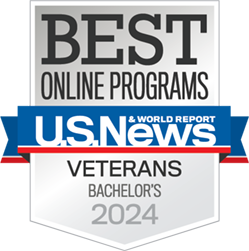
Master of Science in Health Sciences in Integrative Medicine
100% Online
30 Months*
Learn to provide whole-person care with an integrative, evidence-based approach that helps your patients achieve true well-being. The George Washington University (GW) is proud to offer the only Master of Science in Health Sciences (MSHS) in Integrative Medicine (INTM)—highly interprofessional and entirely online.
The scientifically rigorous, interdisciplinary curriculum is accredited by the American Board of Integrative Medicine (ABOIM).
*The total number of credits and duration of the program depend on the number of transferred credits
*Indicates required field
- Read: Privacy Disclaimer Acknowledgment
-
By providing your phone number on this request information form, you have authorized the George Washington University, and its representatives, to send you SMS/Text messages in conjunction with the services you have requested. Message and data rates may apply.
If you no longer wish to receive SMS/Text communications from GW SMHS, you will have the option to opt-out.
By submitting this form, you confirm you have read the Privacy Notice.
Accreditation and Rankings
- GW is accredited by the Middle States Commission on Higher Education
- #62 Best National University*
- #13 Best Online Bachelor's Programs*
- #7 Best Online Programs for Veterans*
* The U.S. News & World Report – 2024 Rankings


Who Is the Ideal Student for This Program?
The INTM MSHS program allows professionals to focus on integrative health and wellness through tailored, patient-centered care. Using research to integrate allopathic, functional, lifestyle, precision/personalized, and preventative medicine to work with patients to develop a care plan that will fit into their lives.
Our students come from varied backgrounds and complement each other in learning, as they share their professional experiences, viewpoints, and strengths in discussions in and outside of courses. Their backgrounds may include:
- Acupuncturists
- Chiropractors
- Dietitians/Nutritionists
- Health Coaches
- Nurses/Nurse Practitioners
- Pharmacists
- Physical/Occupational Therapists
- Physicians (any specialty)
- Physician Assistants/Associates
- Psychiatrists/Therapists/Counselors
- Wellness/Fitness Professionals
Build an Optimal Well-being Plan with Your Patients
In GW’s INTM MSHS online program, you’ll discover how to use systems thinking to evaluate and improve the well-being of your clients. You’ll consider a patient’s health history, lifestyle, and current experiences, and use cutting-edge research from multiple disciplines to develop whole-person care plans.
By graduation, you will merge conventional allopathic medicine with lifestyle medicine, and appropriate, evidence-based therapies including referring patients for acupuncture, yoga therapy, cognitive behavioral therapy, health coaching, and more to build multidisciplinary, evidence-informed care plans. You will practice this throughout the program working with renowned experts in the field.
Develop the Patient-Provider Relationship
Oftentimes, the challenge of patients achieving true well-being is in the maintenance of a care plan. This is why we include coursework that focuses on how to build strong relationships with clients, how to get compensated for the extra time you take to do so, and the evidence behind building sustainable care plans.
You’ll learn how to help clients overcome their resistance to recommended lifestyle changes and to coach them to maintain a whole-person care plan to achieve and enjoy life-long well-being.
Unlock Medical Breakthroughs in the Literature
The program has a strong research focus that supports your creation of evidence-based, multidisciplinary plans, gives you the ability to write effective grant proposals, and can prepare you to move into a PhD program or a research-based career if you choose to do so. You will even have the opportunity to become a certified peer reviewer.
While enrolled, you’ll receive a free membership in the Academic Consortium for Integrative Medicine and Health, which includes discounted registration for the International Congress on Integrative Medicine and Health, free webinars, and research alerts.
Curriculum
In as few as 30 months, graduate from this 100% online program accredited by the American Board of Integrative Medicine (ABOIM). Plus, consider an optional concentration in Nutrition to prepare you to sit for the Certified Nutrition Specialist (CNS) exam from the Board for Certification of Nutrition Specialists℠ (BCNS℠)
Program Outcomes
- Generate whole-person, patient-centered care plans using the integrative medicine core competencies and evidence-based reports from advanced techniques and methods (genomics, proteomics, and metabolomics).
- Evaluate business principles in the context of integrative medicine practice.
- Incorporate nutrition and metabolism fundamentals into patient-care plans.
- Apply clinical research practices to evidence-based integrative medicine patterns of care.
Choose the Program That’s Right for You
The online INTM MSHS is accredited by the ABOIM. Choose the track that best fits your academic and professional experiences and current goals. Not sure which one is the best fit? We can help with that and credits are transferrable between INTM programs.
MSHS in Integrative Medicine
Take part in a scientifically rigorous course of study that shows you how to create successful multidisciplinary, patient-centered care plans to help your patients achieve and maintain optimal well-being.
Graduate Certificate in Integrative Medicine
Learn how you can apply INTM competencies, whole-person care, and principles of nutrition and metabolism to your practice in just 18 months. Credits can be transferred into the INTM MSHS program. Learn More
Graduate Certificate in Integrative Nutrition & Lifestyle Medicine
This comprehensive certificate program combines foundational nutrition knowledge with innovative lifestyle medicine, equipping students with the expertise to provide effective whole-person care and address chronic diseases. Learn More
MSHS in Integrative Medicine + Nutrition Concentration
Study the integrative medicine approach to health care with an emphasis on diet and nutrition, so you can empower patients to prevent and manage chronic diseases like metabolic syndrome and cardiovascular disease.
Graduates of the INTM MSHS with a focus in Nutrition are eligible to sit for the Certified Nutrition Specialist (CNS) exam and be recognized by the Board for Certification of Nutrition Specialists with 1,000 hours of supervised practice. Already a Registered Dietitian (RD)? You can use your RD internship hours and sit for the CNS exam immediately upon graduation.
MSHS in Integrative Medicine + Fellowship
GW designed this academic track for licensed physicians seeking to elevate the level of care they provide. The Fellowship has a 2 week in-person component, which is tailored to fit the student by our Fellowship Director, Andrew Heyman, MD, MHSA. See ABOIM eligibility requirements.
Admission Requirements
To be accepted to this program, you must have:
| Completed application |
| 3.0 GPA or above on a 4.0 scale |
| A bachelor’s degree |
| Resume/CV |
| Personal statement |
| Two letters of recommendation |
Tuition Details
The INTM MSHS at GW consists of 36 credit hours. Explore the cost per credit hour and total estimated program costs.
Note: Tuition rates are subject to change and additional fees may vary by program.
Meet the Program Director

GW’s experienced faculty provide you with the rich, practical knowledge and support needed for you to succeed in the program and in your career.
Leigh A. Frame, PhD, MHS
- Read Full Bio
-
Dr. Leigh Frame brings nutrition and immunity together through clinical, translational research. Her T-shaped expertise in health, wellness, science, and medicine was developed through her wide-ranging experience in biomedical research (from wet bench to clinical research) and overseeing research and education programs. While working at the Johns Hopkins Center for Bariatric Surgery, Dr. Frame earned her PhD in Human Nutrition from the Hopkins School of Public Health and received a Master of Health Science in Immunology from the same school. Dr. Frame earned Distinction in Biochemistry from Mary Baldwin College (now University). Learn more about Dr. Frame on the Frame-Corr Lab website.
Curriculum Details
36 TOTAL CREDITS REQUIRED
In as few as 30 months, 100% online graduate from a program accredited by the American Board of Integrative Medicine (ABOIM), part of the American Board of Physician Specialties (ABPS). Plus, consider an optional concentration in Nutrition to sit for the Certified Nutrition Specialist (CNS) exam from the Board for Certification of Nutrition Specialists (BCNS), part of the American Nutrition Association (ANA).
Students will take the Track Electives from their selected track (Standard or Nutrition). Students who wish to take additional elective courses outside of their selected track may do so with approval from the Program Director.
Credit Hour Policy: Three Credit Courses
Over the 8-week course, you should expect to spend an average of 6 hours per week of direct or guided instruction (e.g., peer-reviewing classmates writing assignments, engaging in team-based assignments, discussion boards) and 12 hours per week in independent learning (e.g., independent research, reading), for a total average of 18 hours per week of direct and independent learning. The time may vary for each student based on professional background, academic experience, and learning style.
Core
- INTM 6101 Nutrition I: Assessment, Diagnosis, Intervention (3)
-
Risk factors for malnutrition in macronutrients (protein, fat, carbohydrates), micronutrients (fat versus water soluble vitamins), and those due to environmental exposures including medications. Nutrition, nutrition research, and their application to health care.
- INTM 6102 Nutrition II: Life Cycle (3)
-
Expands on foundational nutrition knowledge through evaluating and assessing nutrient requirements across the lifespan. Students develop a personalized, culturally appropriate integrative nutrition plan. Permission of the instructor may be substituted for the prerequisite course.
- INTM 6200 Foundations of Integrative Medicine Research (2)
-
The application of the concepts of model-valid and paradigm-specific research designs and methodologies, and how and why these strategies could be groundbreaking for the holistic medical sciences.
- INTM 6201 Foundations in Integrative Medicine (3)
-
Developing a patient-centric integrative medicine approach to care. Historical, sociocultural, and legal aspects of the evolution of medicine in the United States. Focus on clinical domains of therapeutic relationships and motivational interviewing, lifestyle medicine, personalized medicine, and traditional medical systems.
- INTM 6202 Self Care Methods for Health Care Professionals (2)
-
Health care provider wellness; strategies to address the biological and psychological domains of personal and clinical care.
- INTM 6203 Nutritional Metabolism & Environmental Exposure (3)
-
Evaluation of the interconnectedness of the endocrine and cardiometabolic systems in health and disease, and the influence of environmental factors and nutrition on these body systems.
Prerequisites:
- INTM 6201 Foundations in Integrative Medicine
- INTM 6200 Foundations of Integrative Medicine Research
- INTM 6204 Metabolic Networks in Integrative Medicine (3)
-
Diseases of the gastrointestinal, immune, and nervous systems and interconnectedness of these systems in the context of chronic disease states. Symptomatic, functional, and disease markers and the development of integrative treatment plans.
Prerequisite:
INTM 6203 Nutritional Metabolism and Environmental Exposure - INTM 6206 Legal & Medical Ethics in Integrative Medicine (2)
-
Evaluation of the legal, ethical, business, and leadership considerations in decision making related to patient-centered care. Development of strategies associated with successful integrative medicine practice.
Prerequisite:
INTM 6201 Foundations in Integrative Medicine - INTM 6210 Practical Application of Integrative Medicine I (3)
-
Integration of knowledge and practice of the integrative medicine curriculum into practical clinical skills in preparation for addressing core lifestyle topics with patients/clients. Restricted to students in integrative medicine programs.
Prerequisite:
INTM 6204 Metabolic Networks in Integrative Medicine - INTM 6212 Clinical Research in Integrative Medicine (3)
-
Application of clinical knowledge and continued development of clinical reasoning through literature review, Good Clinical Practice (GCP), and peer review. Students develop a research protocol on a domain of integrative health care practice. Restricted to students in integrative medicine programs.
Prerequisites:
- INTM 6201 Foundation in Integrative Medicine
- INTM 6200 Foundations of Integrative medicine Research
Standard Track Electives
- INTM 6205 Clinical Genomics, Proteomics, & Metabolomics (3)
-
Application of clinical genomics, proteomics, and metabolomics to clinical practice; isolating patterns of meaning within complex signals; developing clinical solutions; interpreting the omics literature; and engaging in omics-based research.
Prerequisite:
INTM 6204 Metabolic Networks in Integrative Medicine - INTM 6211 Practical Application of Integrative Medicine II (3)
-
Incorporation of health promotion with disease prevention and advocating for healthy lifestyles and preventive medicine practices. Evidence-based clinical reasoning for the evaluation and management of problems common to outpatient care. Restricted to students in integrative medicine programs.
Prerequisite:
INTM 6210 Practical Application of Integrative Medicine I
Nutrition Track Electives
- INTM 6105 Advanced Nutrition: Biochemistry (3)
-
Nutrition science and metabolism through exploration of nutrient-oriented biochemical pathways.
- INTM 6110 Food Technology and Health (1)
-
The relationships among food, technology, and health. Food processing, health benefits of food, and novel food products and technology.
- INTM 6111 Current Topics in Nutrition (1)
-
Contemporary and emerging areas of interest in nutrition as they relate to research, policy, dietary guidelines, and clinical intervention. Topics vary by semester. May be repeated for credit provided the topic differs. Consult the Schedule of Classes for more details.
Prerequisites:
- INTM 6101 Nutrition I
- INTM 6200 Foundations of Research in Integrative Medicine
- INTM 6120 Nutritional Immunology (2)
-
The effects of nutrient deficiency in the function, or dysfunction, of immunity. Permission of the instructor may be substituted for the prerequisite courses.
Prerequisites:
- INTM 6105 Advanced Nutrition
- INTM 6200 Foundations of Research in Integrative Medicine
Additional INTM Electives
- INTM 6207 Business of Integrative Medicine and Health Care (3)
-
Developing and growing a successful integrative medicine/health care enterprise; the integrative person-centered care concept; business principles, processes, and implementation methods.
- INTM 5099 Variable Topics (variable credits)
-
Interested in conducting research as an independent study with one of our faculty members? With approval of the faculty mentor and the Program Director, this is an option.
Key Dates
|
Fall 2024 |
Spring 2025 |
|
| Application Deadline |
July 20, 2024 (Open) |
December 1, 2024 (Open) |
Admissions Requirements
To be accepted to the MSHS in Integrative Medicine (100% online) program, you must have:
| Completed application |
| 3.0 GPA or above on a 4.0 scale |
| A bachelor’s degree |
| Resume/CV |
| Personal statement: Applicants must include a 400–600 word essay describing your reasons for undertaking study at GW, your academic objectives, career goals, and related qualifications including collegiate, professional, and community activities relevant to your program of interest. Include any substantial accomplishments not already mentioned on the application form. Also include an explanation of how you plan to balance your day-to-day responsibilities with the responsibilities of being a graduate student (reading and writing assignments as well as other projects, typically with weekly deadlines for each course). |
| Two letters of recommendation |
| Official transcripts from every college and university attended. All non-U.S. transcripts (including those in English) must be evaluated by an accredited foreign credential agency. Please find the list of member organizations here: https://www.naces.org/members. |
| Application fee: A non-refundable application fee of $80 is required. The application fee is waived for active-duty U.S. military, current GW students, degree-holding GW alumni, current McNair Program Scholars, and graduates of minority-serving institutions (MSI). |
| Completed coursework: 3 credit hours of Biochemistry and 3 credit hours of Anatomy or Anatomy / Physiology |
| A medical degree or graduate degree in one of the core discipline areas is preferred |
| If applying to Fellowship: Please attach a copy of your medical licensure and a copy of your board certification, if applicable. |
| Fellowship – Identify clinical practicum site: You will work with the Fellowship Director to determine the best timing and location to complete this 2-week in-person component, which can be broken into two 1-week rotations is needed. Most complete their rotation with the Fellowship Director at his clinic in Aldie, VA. |
| Up to six credit hours of previously earned graduate-level coursework may be accepted as transfer credit. Please contact the program office for the full policy and guidelines. Official transfer credit evaluations are conducted only for admitted students. |
NOTE: This program is authorized, exempt, or not subject to state regulatory compliance and may enroll students from all 50 states, U.S. territories and the District of Columbia.
International Students
International students should check with individual programs regarding eligibility for visa sponsorship. Generally, online and hybrid programs are not eligible for student visa sponsorship from GW. This would include transfer students from any other institution with an existing visa.
Official transcripts from institutions outside the U.S. must be accompanied by an official transcript evaluation from an accredited independent evaluating agency. Please be sure you request a detailed evaluation that includes all course titles, credit hours, grades, U.S. degree equivalency, grade-point averages (GPA), and date of degree conferral. For a list of acceptable foreign credential evaluation services, please visit NACES.
Applicants who are not U.S. citizens are also required to submit official test scores for the Test of English as a Foreign Language (TOEFL) or Pearson’s Test of English (PTE) Academics or the academic International English Language Test System (IELTS). To be considered for admission, there are required scores that you will need to meet. Score requirements may differ by school and program so check the admissions requirements for your program.
Supporting Documents and Official Transcript
Documents and Official Transcripts not submitted online should be mailed to:
Mail: George Washington University
ATTN: Transcript Processing Center
1415 W 22nd St.
Suite 220
Oak Brook, IL 60523
Alternatively, official electronic transcripts can be sent to: transcripts@hsprograms.gwu.edu